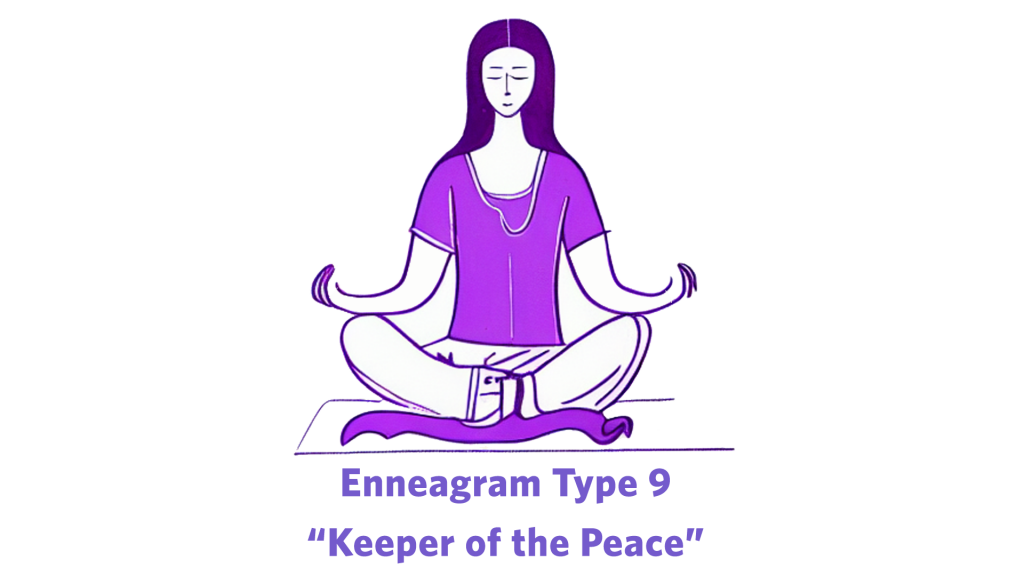Behind every successful Enneagram type lie two things—core motivations and core fears! The core motivation is what leads even the laziest type 9 to strive hard for conflict resolution and peacekeeping.
Understanding this persistent driving force that pushes you not only helps Enneagram types achieve their goals but also surround themselves with the right motivation to achieve these goals.
Let’s take a look at 27-year-old Jeannette, for example. The former Botany student faced trouble focusing on and getting academic tasks completed in university, which, needless to say, severely impacted her performance.
Learning her Enneagram type and Enneagram motivations finally helped her figure out what was lacking—you see, as a type 7, Jeannette hated being bored and stuck, which was exactly what her assignments, and her course of study itself, represented to her, though she didn’t initially realize this.
Understanding that her core motivation was to be free and explore avenues without limitations led her to pursue a career path that allowed this. Today, Jeannette is extremely happy, successfully writing and producing well-received plays!
Learning your core motivations can be potentially life-changing, as you’ve just seen. Here’s the lowdown on different Enneagram core motivations.
Different Enneagram Core Motivations
Before we go on to discuss the core motives of each Enneagram type, there are some things to know about core motivations:
- There are plenty of things that motivate people; what motivates you isn’t going to be restricted to solely what your Enneagram defines. All of these can help you figure out what you want and work towards it.

- What core motivations your Enneagram type lays out needn’t be perfect fits. You can choose one that you resonate with the most and try to identify its trail in your life. Many people tend to take core motives too literally—for example, 3s are after self-worth and not necessarily tangible success, as many people mistakenly believe.
- Finding your motivation can take time—a lot of it! Core motivations may seem like they’re straightforward, but they can be quite buried and require a lot of introspection to figure out. Most often, motives are only recognizable in hindsight.
Type 1
Type 1s strive to be good. We’re not just talking about being good at building or doing things like Iron Man; we’re talking about being ethically, morally, and inherently good like Cap.
This core motivation doesn’t lead to any sort of competition nor does it spark off any pursuit for perfection. Type 1s revel in the presence of values such as fairness, integrity, and righteousness, and believe that there is good in everything.
Because of this core motivation, type 1s strongly fear being seen as deficient or corrupt (especially irredeemably). They’ll work hard to avoid this at any cost.
They also hate being the last to know when they’re wrong, which means that they’ve perfected the skill of introspecting and identifying all their imperfections so that someone else can’t point them out to them (a type 1’s logic—you won’t be criticized if you criticize yourself all the time!).
1s also hate being the last to know that they’re wrong.
Type 2
Type 2s need to be needed, wanted, and loved. They love it when they’re taking care of others and use this caring side of theirs to create a positive environment, foster positive and secure relationships, and feel/make themselves indispensable (can’t be cast off if you’re indispensable, right?).

Because of this driving factor, 2s hate being rejected, dismissed, and discarded. Reject help from a 2 and you’re going to send them spiraling down a road of self-pity, as they feel that rejection of their help means that you don’t love them and that they’re unlovable. For 2s, self-worth=how helpful and lovable others find them.
Type 3
Type 3s need to feel worthy and valuable. Some use this motivation to fuel big public successes, while others use this for subtler personal successes.

Like 2s, 3s also like it when others feel like they’re worthy—they lap up such validation. 3s learn early that performing tasks well will elevate their value, which is why many 3s tend to chase success through productivity.
Because of this 3s will avoid falling short of their potential or being deemed worthless in any sense, even if that means exerting a lot of pressure on themselves or having no finish line in sight (type 3 logic—there’s always more potential to meet).
Type 4
Type 4s want to be understood deeply and truly. They seek such understanding not only from others but themselves, as well, which is why you’ll find 4s to be very introspective.
They’ve built mansions for themselves in their heads and will very happily live in these, all the while trying to figure out what’s lacking or missing and how to achieve their goals.
4s also seek to be completely authentic, and naturally, introspection helps achieve this. 4s will, at all costs, avoid being insignificant and inauthentic.
Type 5
Type 5s are motivated by self-sufficiency and competency. By being both, 5s can keep all their resources and hold onto the things they already own (whether that’s money, time, space, energy, or other resources).
Therefore, 5s hate being left resourceless or depleted, as well as taking resources from others.
Type 6
6s need to be secure and safe in the community. They detest uncertainty and spend a lot of time managing uncertainty in all aspects (financial, physical, relationships, etc.) as this lets them feel safe.

6s will, therefore, wilt when left without safety or support. They counter this by portraying themselves as strong and assertive, finding connections, and cementing relationships.
Type 7
Type 7s are free souls, driven by the longing to explore all possibilities without any limitations. Brimming with ideas, positivity, and enthusiasm, 7s love exploration, being unrestrained, happy, content, satisfied, and free. Therefore, as we saw with Jeannette, 7s hate being bored, stuck, or limited in any sense.
Type 8
Type 8s are motivated by shielding themselves against vulnerability, most commonly by being the opposing force. 8s hate showing their soft spots as others can exploit this, so any vulnerability in themselves or others is intolerable (love is in the air? Nope. Oxygen, carbon dioxide, and nitrogen are in the air). However, a vulnerability in others will not incite anger in 8s; it’ll motivate them to become protective.
8s, therefore, hate being controlled by others or being betrayed.
Type 9
Type 9s are motivated by keeping peace externally and internally, and maintaining unity and balance. They have a sense of fairness that they seek to bring into their surroundings, and actively move towards simplicity, comfort, and ease.

Because of this, 9s will avoid any sort of conflict, including internal ones.
The Bottom Line
And there we have the different core motivations Enneagrams are driven by! Learning your core motivation will help achieve growth, but remember not to define your life by this one motivation alone.

